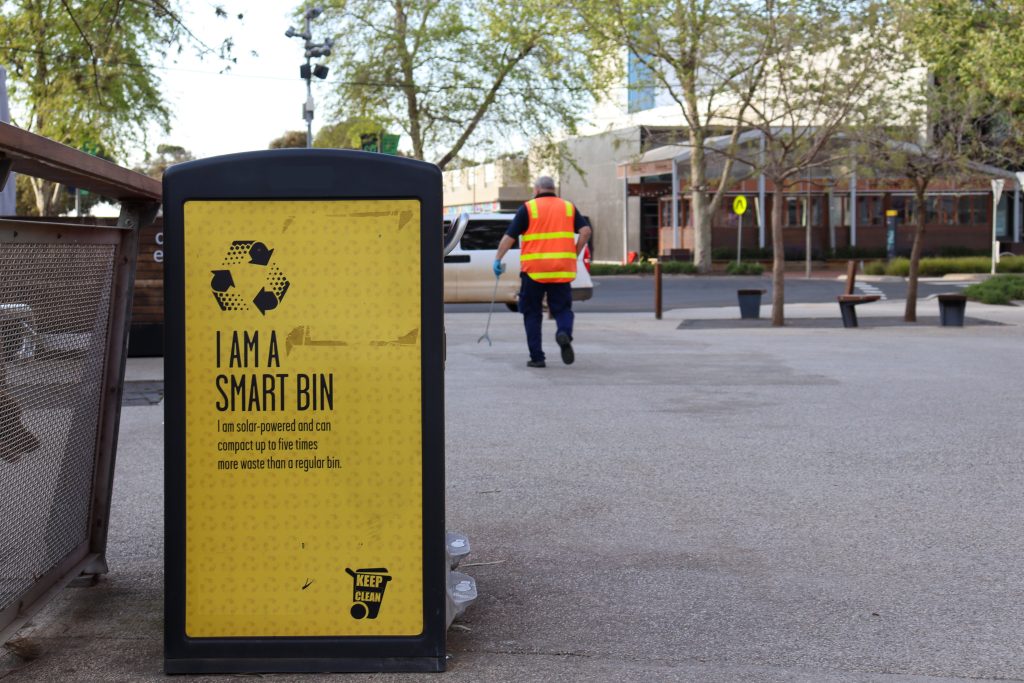Sustainability has become an essential focus for businesses in today’s world, as companies are increasingly held accountable for their environmental impact. A core aspect of any sustainability strategy is effective waste management. By reducing waste, improving recycling rates, and adopting eco-friendly disposal methods, businesses can significantly contribute to their sustainability goals and demonstrate a commitment to protecting the planet.
In this blog, we’ll explore how proper waste management plays a pivotal role in helping businesses meet their sustainability objectives, enhance operational efficiency, and boost their environmental reputation.
Why Waste Management Matters for Sustainability
The concept of sustainability revolves around meeting the needs of the present without compromising the ability of future generations to meet their own needs. Effective waste management is a key part of this because it directly reduces the negative impact a business can have on the environment.
Here’s how waste management supports sustainability:
- Reducing Resource Consumption: When businesses recycle or reuse materials, they lessen the need for raw resources, conserving natural assets such as water, minerals, and energy.
- Lowering Carbon Emissions: Proper waste management practices like recycling and reducing landfill waste significantly decrease greenhouse gas emissions, which contribute to climate change.
- Preventing Pollution: Controlling waste helps businesses prevent pollution of air, water, and soil, which directly affects ecosystems and human health.
- Supporting a Circular Economy: Adopting waste management strategies that prioritise resource recovery, recycling, and reuse helps businesses transition toward a circular economy, where materials are continuously cycled back into production rather than disposed of.
Integrating Waste Management into Your Sustainability Strategy
For businesses looking to strengthen their sustainability goals, integrating a comprehensive waste management plan is critical. Here are a few ways effective waste management can be embedded into your sustainability efforts:
Waste Reduction at the Source
One of the most impactful ways to achieve sustainability goals is to reduce waste generation at the source. This involves identifying areas within your operations where waste is being unnecessarily produced and implementing strategies to reduce or eliminate it. Examples include:
- Optimising production processes to minimise material waste.
- Using digital tools to reduce paper consumption.
- Switching to reusable materials rather than disposable ones.
By reducing waste generation, businesses not only cut costs but also lessen the environmental impact of their operations.
Improving Recycling Efforts
A strong recycling program is a cornerstone of sustainable waste management. Businesses should prioritise recycling materials such as paper, cardboard, plastics, and metals, ensuring that these valuable resources are diverted away from landfills and back into production cycles.
To maximise recycling efforts, businesses can:
- Set up clearly labelled recycling bins throughout the workplace.
- Educate employees on what can and cannot be recycled to minimise contamination.
- Partner with local recycling facilities or waste management companies that offer tailored recycling solutions.
By improving recycling rates, businesses reduce their reliance on raw materials and lower their environmental footprint.
Adopting Circular Economy Practices
A circular economy model emphasises the reuse of materials to keep them in circulation for as long as possible. Businesses can support this model by finding ways to repurpose waste products, whether through donation, upcycling, or remanufacturing.
For instance, manufacturers can repurpose offcuts or excess materials into new products, while office-based businesses can donate used electronics or furniture to charities or recycling programs.
The more materials are reused and repurposed, the fewer resources are extracted from the environment, further promoting sustainability.
Implementing Composting Programs
For businesses that generate organic waste, such as food scraps or landscaping debris, composting can be an effective waste management solution. Composting turns organic waste into nutrient-rich soil, diverting it from landfills where it would otherwise produce harmful methane emissions.
Many businesses, especially those in the food service, hospitality, and retail industries, can adopt on-site composting or partner with local composting facilities to responsibly dispose of organic waste.
Engaging Employees in Waste Management Initiatives
Sustainability efforts are most effective when embraced company-wide. To make waste management an integral part of your business’s culture, it’s essential to engage employees. This can be done through:
- Employee training on waste reduction and recycling protocols.
- Incentive programs that reward employees for reducing waste or improving recycling rates.
- Creating waste reduction challenges to encourage innovation and participation.
When employees are actively involved in waste management initiatives, businesses are more likely to meet their sustainability targets and create a lasting impact.
Benefits of Effective Waste Management for Sustainability
Incorporating effective waste management into a company’s sustainability strategy offers several significant benefits:
Environmental Protection
By reducing waste, businesses contribute to a healthier planet. Recycling, composting, and reusing materials lower the demand for new resources and minimise pollution, helping to protect ecosystems and biodiversity.
Cost Savings
Proper waste management can lead to cost savings for businesses. Reducing material waste, improving resource efficiency, and recycling can lower disposal costs and reduce the need for purchasing raw materials.
Compliance with Regulations
As governments around the world enforce stricter environmental regulations, businesses with effective waste management systems are better positioned to remain compliant and avoid fines or penalties.
Enhanced Corporate Reputation
Consumers are increasingly favouring businesses that demonstrate a commitment to sustainability. A strong waste management program helps businesses build a reputation as environmentally responsible, which can attract eco-conscious customers and clients.
Contribution to Global Sustainability Goals
Waste management is a crucial aspect of global sustainability initiatives, such as the United Nations’ Sustainable Development Goals (SDGs). By managing waste responsibly, businesses contribute to the achievement of broader goals related to climate action, resource conservation, and sustainable production.
Conclusion: Waste Management as a Key to Sustainability Success
Effective waste management is no longer a “nice-to-have” but a critical component of a business’s sustainability strategy. By reducing waste generation, improving recycling efforts, adopting circular economy practices, and engaging employees, businesses can significantly advance their environmental goals while also gaining financial and reputational benefits.
For businesses committed to making a positive impact on the environment, incorporating robust waste management practices is a key step toward achieving long-term sustainability. By doing so, companies not only protect the planet but also position themselves as leaders in the global movement toward a greener, more sustainable future.


